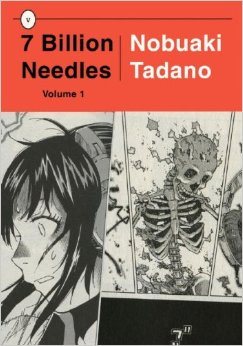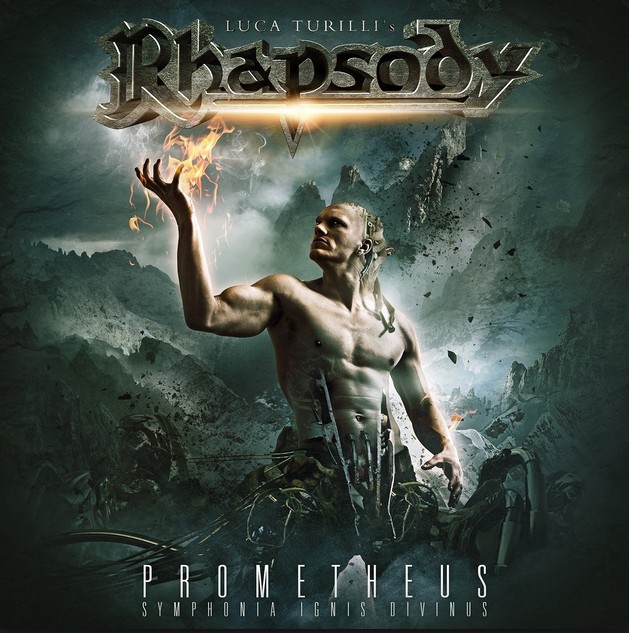 It’s time for Helloween to start providing reasons why they should continue to exist. We’re now three albums past their supposed comeback effort Gambling with the Devil, and now they’re barely getting dressed for work. Not only have you already heard this entire album many times before, including bonus tracks, but their occasionally experimental touches actually repulse you back towards their more familiar songs. Yeah, this is the kind of album where you hang on to the fillers for comfort.
It’s time for Helloween to start providing reasons why they should continue to exist. We’re now three albums past their supposed comeback effort Gambling with the Devil, and now they’re barely getting dressed for work. Not only have you already heard this entire album many times before, including bonus tracks, but their occasionally experimental touches actually repulse you back towards their more familiar songs. Yeah, this is the kind of album where you hang on to the fillers for comfort.
“Heroes” sets a generic tone for a generic album…bouncy main riff, 16th note double bass, snare on the 2 and the 4, shouty gang chorus with lots of multiband compression…it’s not offensive, but I’ve heard it SO many times before (contrast with “Saber and Torch” by Edguy, “Army of the Night” by Powerwolf, “Far Away” by Battle Beast…and those are songs released in the past year alone) that its impossible to muster much excitement.
“Battle’s Won” and the title track are tolerable and fast. Maybe tolerable because they’re fast – an acceptable baseline for a Helloween song these days is “doesn’t overstay its welcome.” Then the album really starts to come apart. Track after track of Deris-penned composed filler tracks, all of them bouncing along at a fairly fast clip and all of them feeling utterly interchangeable. In “Lost in America” they just repeat the chorus of “Who is Mr Madman” with different words. Fuck off, guys. If I wanted a glorified cover band I’d listen to Unisonic.
As often happens these days, Weikath saves the album a bit. I liked the Boston-sounding “Creatures in Heaven”, and the savage and energetic “Claws” – which retells “Eagle Fly Free” from a less idealistic and more primal standpoint. Romanticise eagles if you want, but never forget the claws. “You, Still of War” is cute. Don’t know if you’d put her in a major movie, but you’d fuck her on the casting couch.
Basically, we’re spoiled for choice in 2015, and we can and should expect better than makeweight efforts from nostalgic past giants. In a world where Black Majesty, Battle Beast, and Rhapsody represent the state of the art, Helloween seems dated and old – a jalopy on a scalper’s lot with a new coat of paint. Two or three genuinely interesting songs, and for the rest I’m struggling to stay awake. It’s not “My God Given WRONG hurr hurr”, but we’re getting there.
 Do you like to read manga? How do you keep yourself distracted from the constant gasping, wheezing sound of the art form DYING ON ITS FEET?
Do you like to read manga? How do you keep yourself distracted from the constant gasping, wheezing sound of the art form DYING ON ITS FEET?
This is shit, guys. I got 7 Billion Needles in 2012. Junji Ito was in one of his periodic 2-3 year “releasing fucking nothing” dry spells, and this looked vaguely similar. What I got managed to be not what I expected via the contradictory path of being EXACTLY what I expected: cliche after cliche after cliche, hammered down with the repetition of a judge’s gavel.
This is the swill that passes for horror manga? Even a novice to the form like myself could pick up on all copy-of-a-copy ideas. “Main character fuses with a symbiote and fights monsters”? Off the top of my head: Parasyte, Variante, Tokko, and Genocyber…and I read LESS THAN ZERO manga. Main character’s an alienated high school girl? Be careful, I’m not sure Western markets are capable of handling this much originality.
The story is better recapped by someone who cares more than me (ie, anybody). The character design is workmanlike and boring. The art is full of computer-assisted gradient shading and all the other parlour tricks of a bored pen monkey cranking out a generic serial to an editor’s cracking whip. The plot has a lot of…events, you could call them. Things happen. Then they stop happening. Repeat for a few hundred pages. Launch franchise.
7 Billion Needles is apparently inspired by Needle, by Hal Clement. The storytelling is not reminiscent of any era of Western science fiction, just a very standard manga formula that’s executed neither better or worse than average, and doesn’t stand out even by being a train wreck. Cripples inspire pity: bores inspire no reaction at all.
When I think of horror manga, I think of Kazuo Umezu’s doomed worlds, Shintaro Kago’s gross-outs, Suehiro Maruo’s nihilism and aesthetics, Jun Hayami’s brutality, Junji Ito’s fetishistic HR Gigerisms…even Hideshi Hino’s primitive efforts have more panache and charm than 7 Billion Needles.
The title comes from a metaphor: the difficulty of finding a particular needle amongst seven billion other needles. This also describes the experience of anyone trying to find decent manga in this day and age.
 Listening to this is like drinking from a fire hose.
Listening to this is like drinking from a fire hose.
Most bands take time off, then release a batch of new songs (ie, albums). Luca Turilli works this formula on a meta level: he takes a LOT of time off, then releases a flurry of albums. He has truly pathological release patterns. Counting both Rhapsody albums and solo releases, from 2000-2002 he released three albums and one EP. Then, a few years off. Then, in 2006, three new albums. Another break. Then, from 2010 to 2012, three new albums and one EP. Now, we’re coming off another 3 year break. Have the floodgates opened again?
Prometheus is a monstrous effort, and ranks among Turilli’s greatest work. The power metal is still there, fused against an even expanded backdrop of symphonic scoring, as well as an electronic element we haven’t heard from him since Prophet of the Last Eclipse. There’s so much of…everything that it becomes overwhelming. This is musical Where’s Waldo – a short exercise in what it’s like to have ADD.
“Il Cigno Nero” is fast and breezy, a power metal song with a lead guitar tone so crisp and sharp that each note seems rimed in frost. “Rosenkreuz” and “Anahata” are slower but attack from about the same angle. Choruses are large and powerful, but layered with that distinctive Rhapsody intrigue that makes you look forward to your tenth and twelve listen, just so you can appreciate the final small details.
“Yggdrasil” sports the album’s most diverting chorus, and would have made a good lead single. “One Ring to Rule Them All” has a massive build-and-release in the prechorus leading into the chorus, as well as an appealing folk metal bridge. Final track “Codex Nemesis” is 18 minutes of the densest and most intricate music Luca’s composed to date. I think I had to listen to all the other songs twice before I felt equipped to understand this one.
There’s a lot of things this album is, and a few things it isn’t. It’s not a power metal assault like the final two Rhapsody of Fire albums. The guitars exist only as one instrument among many. It’s not really as much of a “band” effort as some seem to be looking for – I’ll take Luca’s word that there’s a guy playing bass along with this, because I sure can’t hear him in the mix. But that’s not what this project was meant to be. It was designed to push the Rhapsody sound as far in one direction as it would go.
Does it work? Listen to “Solomon and the 72 Names of God”, for example, and tell me. It’s not a question of whether the album has things to give. It’s a case of whether you’re equipped to capture it all. The nozzle of the Luca Turilli fire hose now stands before you, and someone just unkinked the pipe.
 It’s time for Helloween to start providing reasons why they should continue to exist. We’re now three albums past their supposed comeback effort Gambling with the Devil, and now they’re barely getting dressed for work. Not only have you already heard this entire album many times before, including bonus tracks, but their occasionally experimental touches actually repulse you back towards their more familiar songs. Yeah, this is the kind of album where you hang on to the fillers for comfort.
It’s time for Helloween to start providing reasons why they should continue to exist. We’re now three albums past their supposed comeback effort Gambling with the Devil, and now they’re barely getting dressed for work. Not only have you already heard this entire album many times before, including bonus tracks, but their occasionally experimental touches actually repulse you back towards their more familiar songs. Yeah, this is the kind of album where you hang on to the fillers for comfort.

